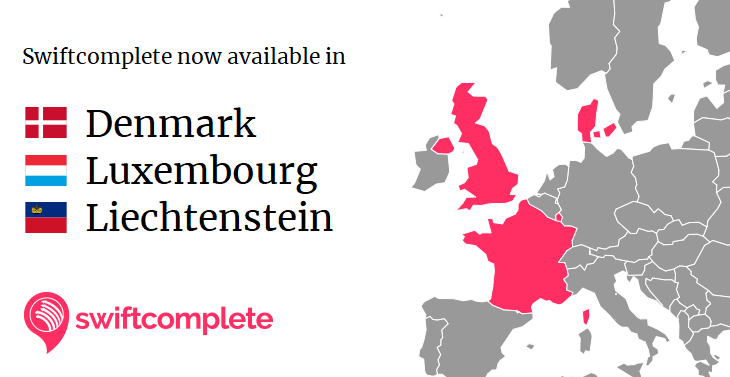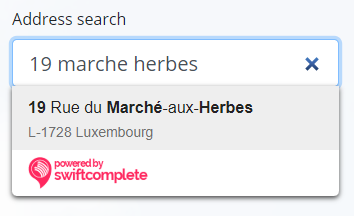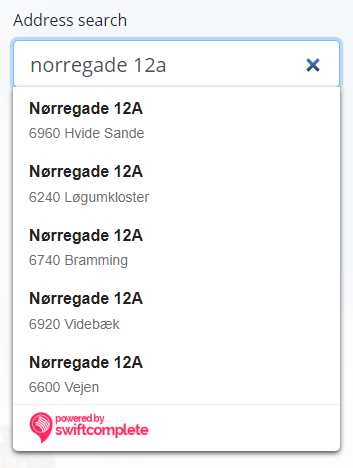Address Autocomplete coverage expanded to Denmark, Luxembourg & Liechtenstein
By Chris Winfield
By Chris Winfield
The latest Swiftcomplete monthly update features expanded coverage for our address autocomplete API in three additional countries, and enhanced functionality for the reverse geocoding API that was launched in our previous update.

We launched our address autocomplete API initially in the UK, and recently added 25.4 million French addresses to the service.
In this release, we're pleased to further expand address autocomplete coverage to Denmark, Luxembourg and Liechtenstein.

It's possible to restrict searching to either a specific country or a list of countries. If you specify a list of countries, the API will prioritise addresses in your current country first.

If you're interested in trying the service or getting started with a ready-made prototype, head over to our interactive integration builder.
Since we launched the Reverse Geocoding API in our previous monthly update, we've had feedback from customers and we're pleased to introduce new functionality in this monthly update.
By default, the Reverse Geocoding API returns the five closest addresses to a coordinate, sorted by distance.
We've added a new parameter, groupByCompass. Using this parameter always returns the nearest address, but then finds up to four nearby addresses in each compass direction.
Use groupByCompass to return an overview of an area, rather than returning 5 adjacent properties which happen to be the closest.
groupByCompass is available in both the Reverse Geocoding API and the latest update of the @swiftcomplete/reverse-geocode npm package.
Our goal is to have full global coverage for address autocomplete, with seamless cross-border searching (without needing to preselect a country).
Rather than bulk-importing the whole world in one go, we're taking the time to source the best possible data for each country.
This process involves using our extensive experience to standardise, format and cleanse data, and optimising the search algorithms for local search patterns.
This might take a little longer, but the research and development is an investment in improving the user experience when searching for addresses in the long term.
If you have any questions about this update or suggestions for our future product roadmap, contact our support team and we'll be happy to help!